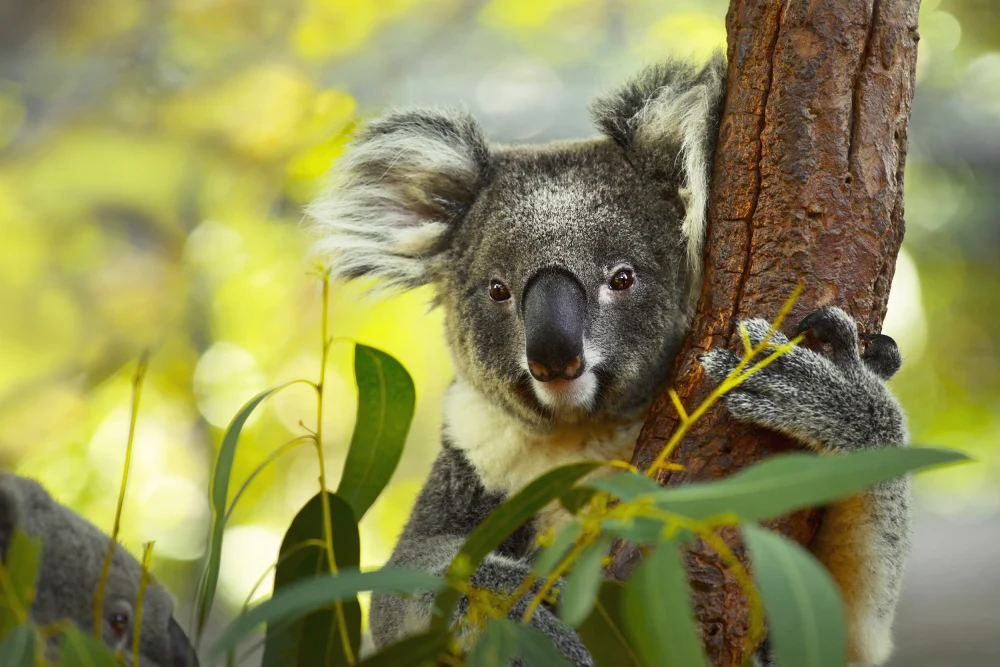In a major breakthrough for wildlife conservation, Australia has officially approved the world’s first vaccine designed to protect koalas from chlamydia—a devastating disease responsible for up to half of all deaths among these beloved marsupials.
The single-dose vaccine, developed after more than a decade of research, has now been cleared by the country’s veterinary medicine regulator for use in wildlife hospitals, veterinary clinics, and even in field operations.
Koalas Facing a Population Crisis
Koalas (Phascolarctos cinereus) have been in sharp decline. Current estimates place their numbers between 224,000 and 524,000 across Australia, according to the National Koala Monitoring Program. Disturbingly, the World Wide Fund for Nature (WWF) reports that the koala population has been cut in half over the past 20 years.
Since 2022, koalas have been listed as endangered in Queensland, New South Wales, and the Australian Capital Territory, with just 95,000 to 238,000 individuals remaining in those regions.
Alongside threats such as habitat destruction, bushfires, and climate change, chlamydia has emerged as one of the most dangerous risks to their survival. The infection can lead to blindness, infertility, and premature death.
“It’s not uncommon for half the koalas within a population to be infected,” explained Professor Peter Timms, a microbiologist at the University of the Sunshine Coast (USC) who led the research. “In some areas, infection rates can reach 70%. Some individual colonies are edging closer to local extinction every day.”
How the Disease Spreads
Unlike humans, koalas are infected with a different strain of chlamydia, typically spread through mating or other physical contact. Young joeys can also contract the disease from their mother’s pouch, making early protection vital for population survival.
Vaccine Offers Multi-Level Protection
Before approval, the vaccine underwent eight trials involving more than 500 koalas. The results were highly encouraging:
- 65% reduction in mortality linked to chlamydia in wild populations.
- Lowered infection rates during breeding age.
- Prevention of disease progression.
- In some cases, even reversal of existing symptoms.
“This vaccine provides three levels of protection—reducing infection, preventing clinical disease, and sometimes reversing symptoms,” explained Dr. Samuel Phillips, senior researcher and molecular microbiologist at USC.
The achievement wasn’t without challenges. “We started this process five years ago, thinking it would take one year,” Phillips told NBC News. “Five years later, we finally got to the point. It’s quite humbling—I can’t believe that we did this.”
Why It Matters
Until now, the only treatment option was antibiotics, which carry serious risks for koalas. The drugs often interfere with the animal’s ability to digest eucalyptus leaves—their primary food source—leading to malnutrition or even death.
The new vaccine offers a safer, long-term solution and could dramatically alter the trajectory for koala survival. Conservation groups see this as a turning point in efforts to save the species, not only by extending individual lifespans but also by strengthening the genetic survival of populations.
“This is a powerful reminder of what science and conservation working together can achieve,” Timms said.
A Glimmer of Hope for Australia’s Iconic Marsupial
Koalas, long recognized as a symbol of Australia’s unique wildlife, have faced staggering losses in recent decades. The approval of this vaccine could be the most significant development yet in reversing their decline.
SEO Keywords: koala vaccine chlamydia, Australia approves koala vaccine, endangered koalas protection, University of Sunshine Coast chlamydia vaccine, koala conservation news 2025
